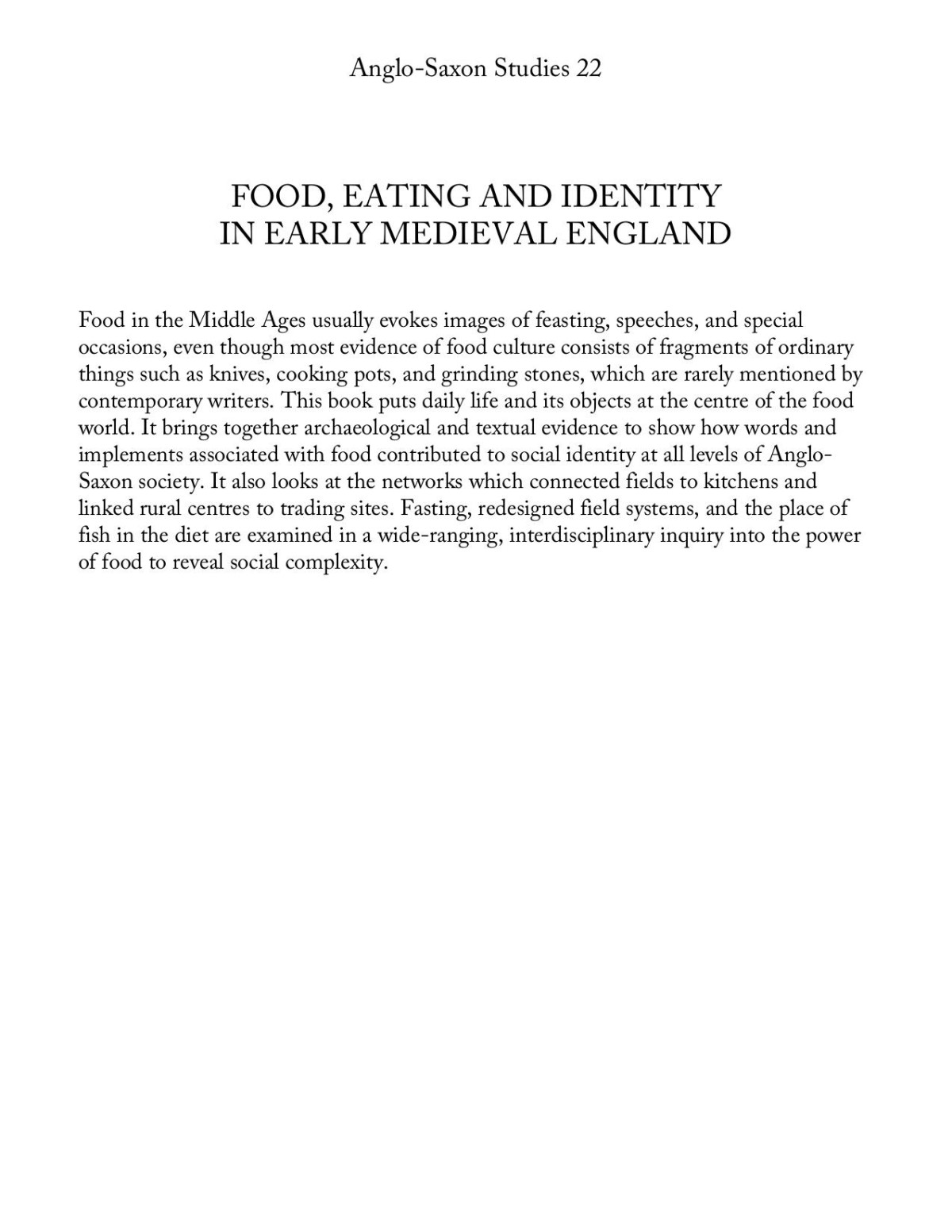

Most ebook files are in PDF format, so you can easily read them using various software such as Foxit Reader or directly on the Google Chrome browser.
Some ebook files are released by publishers in other formats such as .awz, .mobi, .epub, .fb2, etc. You may need to install specific software to read these formats on mobile/PC, such as Calibre.
Please read the tutorial at this link: https://ebookbell.com/faq
We offer FREE conversion to the popular formats you request; however, this may take some time. Therefore, right after payment, please email us, and we will try to provide the service as quickly as possible.
For some exceptional file formats or broken links (if any), please refrain from opening any disputes. Instead, email us first, and we will try to assist within a maximum of 6 hours.
EbookBell Team

4.8
104 reviewsFood in the Middle Ages usually evokes images of feasting, speeches, and special occasions, even though most evidence of food culture consists of fragments of ordinary things such as knives, cooking pots, and grinding stones, which are rarely mentioned by contemporary writers. This book puts daily life and its objects at the centre of the food world. It brings together archaeological and textual evidence to show how words and implements associated with food contributed to social identity at all levels of Anglo-Saxon society. It also looks at the networks which connected fields to kitchens and linked rural centres to trading sites. Fasting, redesigned field systems, and the place offish in the diet are examined in a wide-ranging, interdisciplinary inquiry into the power of food to reveal social complexity.
Allen J. Frantzen is Emeritus Professor of English at Loyola University Chicago